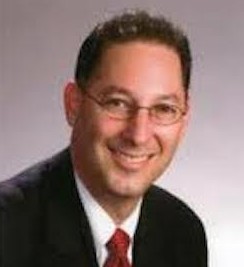In 1897, with the help of Edouard-Gerard Balbiani, an embryologist, Binet founded and directed Intermediaire des Biologistes. Organe International de Zoologie, Botanique, Physiologie et Psychologie. The journal was not affiliated with any school, and was created with the purpose of creating just another outlet of communication for psychologists. In 1899, Theodore Simon and Henri Pieron joined the lab, and began working under Binet at Sorbonne. Simon provided many needed test subjects and helped Binet continue building upon the work that had been started with “Individual Psychology”. Around this time, Binet joined the La Societe Libre Pour l’Etude Psychologique de l’Enfant (SLEPE), the free society for the psychological study of the child, which was a group of teachers, psychologists, and school administrators that were all involved in current educational issues. By 1902, he became its president.
In 1903, Binet published his book, L’Etude Experimentale de l’Intelligence, which explained certain exercises that he used and noted their results. Today, they are referred to as projective tests, which included: responses to ink blots, imaginative storytelling in response to stimuli, sentence-completion questionnaires. It is worth noting that the inkblot tests that Bin et described in his book took place about ten years before Herman Rorschach, the name today, which is associated with the inkblot tests, began using them. The same book also made suggestions claiming imageless though existed. This information was never recognized until other psychologists from the Wurz-burg school published the same concept over four years later. Also in 1903, a new committee of the SLEPE was formed, with the sole purpose of studying the differences between normal and abnormal children. The Minister of Public Education, Joseph Chaumie, created a Ministerial Commission in 1904 which took responsibility for figuring out how to deal with “abnormal” children in their government’s education system, which was now a growing public concern. After hearing of this, Binet was more convinced of the importance of his research at the SLEPE and began to focus more on his “experimental pedagogy” with the help of Simon and to a lesser extent Henri Damaye; throughout this time continued to conduct tests on his daughters at home. By 1905, Binet was named Secretary of the pedagogical subcommittee of the commission.
et described in his book took place about ten years before Herman Rorschach, the name today, which is associated with the inkblot tests, began using them. The same book also made suggestions claiming imageless though existed. This information was never recognized until other psychologists from the Wurz-burg school published the same concept over four years later. Also in 1903, a new committee of the SLEPE was formed, with the sole purpose of studying the differences between normal and abnormal children. The Minister of Public Education, Joseph Chaumie, created a Ministerial Commission in 1904 which took responsibility for figuring out how to deal with “abnormal” children in their government’s education system, which was now a growing public concern. After hearing of this, Binet was more convinced of the importance of his research at the SLEPE and began to focus more on his “experimental pedagogy” with the help of Simon and to a lesser extent Henri Damaye; throughout this time continued to conduct tests on his daughters at home. By 1905, Binet was named Secretary of the pedagogical subcommittee of the commission.
On April 21, 1905, Beaunis presented a summary of Binet and Simon’s recent work to the International Congress in Rome, which was the first version of the first Binet-Simon intelligence scale to be shared internationally. Along with the test, three different approaches were emphasized that would have to be used to effectively diagnose the degree of intelligence a child possessed: a medical, pedagogical, and psychological approach. They claimed the medical and pedagogical methods, which were both acknowledged as being important, would only be able to identify possible signs of retardation, while the psychological method led to a more certain indicator of intellectual ability. The pedagogical approach, which was aimed at evaluating intelligence based on the child’s acquired knowledge, was not always an accurate measurement because the quality of education they received could skew the results.
Fort Lauderdale’s Leading Criminal Defense Attorney
If you have been charged or believe you may be charged with a crime, an experienced criminal defense attorney is imperative. Kenneth Padowitz, P.A. aggressively handles all State and Federal criminal charges. Contact our law firm to discuss your situation. Our Fort Lauderdale criminal attorney will strategically develop a defense designed personally for you and your situation. Kenneth Padowitz, P.A. represents clients throughout Broward County and all of South Florida, including: Fort Lauderdale, Miami, Palm Beach, Boca Raton, Weston, Hollywood, Davie, Hallandale Beach, Parkland, Cooper City, and Coral Springs.
- Fort Lauderdale Criminal Attorney
- Fort Lauderdale DUI Attorney
- Fort Lauderdale Federal Criminal Attorney

